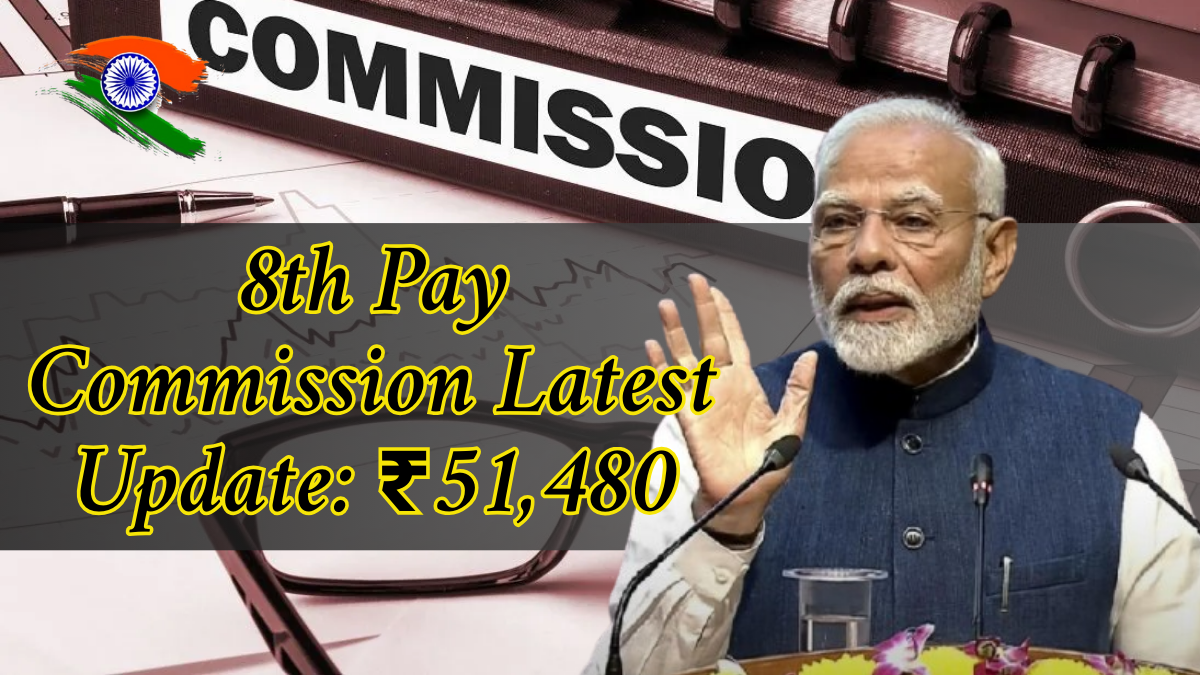In a landmark move just ahead of the Union Budget 2025, the Union Cabinet, under the leadership of Prime Minister Narendra Modi, has approved the constitution of the 8th Pay Commission. Union Minister Ashwini Vaishnaw made the announcement, confirming that the central government is moving forward with plans to revise the salaries, pensions, and allowances of its employees and retirees. This decision is set to impact over 1.15 crore people, including both serving employees and pensioners.

Summary Table: 8th Pay Commission Confirmed
| Key Details | Information |
|---|---|
| Announcement Date | May 2025 (a few days before Union Budget 2025) |
| Announced By | Union Minister Ashwini Vaishnaw |
| Approved By | Union Cabinet, led by Prime Minister Narendra Modi |
| Purpose | Salary, pension, and allowance revision for central government employees |
| Expected Formation | By 2026 |
| Expected Implementation Date | January 1, 2026 |
| Estimated Beneficiaries | ~50 lakh current employees, ~65 lakh pensioners |
| Official Website | https://finmin.nic.in |
What is the 8th Pay Commission?
The 8th Pay Commission is a government-constituted body responsible for recommending revisions in the salary structure, pension system, and allowances for central government employees. These recommendations are typically made every 10 years to adjust the compensation system in line with inflation, economic conditions, and the evolving needs of government employees.
The new commission will evaluate current compensation models and propose necessary updates to ensure government salaries remain competitive and just.
Key Responsibilities of the 8th Pay Commission
- Revising basic pay for central government employees
- Adjusting pension benefits for retirees
- Recommending changes in various allowances such as Dearness Allowance (DA), House Rent Allowance (HRA), and travel concessions
- Evaluating bonus structures
- Ensuring equitable and sustainable compensation policies in line with inflation and fiscal responsibility
What is the Fitment Factor?
One of the most discussed metrics in salary revision is the “fitment factor.” It is a multiplier used to calculate revised salaries based on the existing pay. It takes into account:
- Inflation trends
- Government’s financial health
- Market competitiveness
- Employee welfare needs
Based on current reports, the new fitment factor may significantly increase the basic pay. For instance, the minimum basic salary is expected to rise from Rs 18,000 to as high as Rs 51,480, though official figures are still awaited.
Expected Salary Hike
Although the government has not released an official figure for the hike, speculative calculations suggest a potential increase in the range of 2.57x to 3.68x, depending on the finalized fitment factor.
This could mean a basic salary jump for entry-level positions from Rs 18,000 to possibly Rs 51,480. However, the final increase will depend on multiple variables, including recommendations from the commission and government approval.
Who Will Benefit?
The 8th Pay Commission is expected to impact:
- Around 50 lakh central government employees, including civil services and defense personnel.
- Approximately 65 lakh pensioners, including retired defense employees.
The revisions will apply across departments, ministries, and sectors under the central government’s jurisdiction.
Timeline for Implementation
According to official statements and past precedent:
- The 8th Pay Commission will likely be formed in 2026.
- Recommendations are expected to be implemented from January 1, 2026.
This timeline maintains the 10-year cycle followed by previous pay commissions since 1946.
Historical Context: A Legacy of Reforms
India has seen seven pay commissions since 1946. Each commission has brought significant changes to the pay structure of government employees:
- 7th Pay Commission (2016): Increased salaries based on a 2.57x fitment factor
- 6th Pay Commission (2006): Major overhaul in pay bands and grade pay
The 8th Pay Commission continues this tradition, aiming to align government pay with current economic realities.
Why It Matters
The formation of the 8th Pay Commission is more than just a bureaucratic decision—it affects millions of families across the country. The ripple effects of revised pay structures will also impact sectors like real estate, consumer goods, and banking, as disposable income among government workers rises.
It also signals the government’s commitment to maintaining a transparent and responsive salary framework for its workforce, which is essential for productivity and morale.
FAQs About the 8th Pay Commission
Q1: What is the 8th Pay Commission?
A: A government-formed commission to revise salaries, pensions, and allowances of central government employees and pensioners.
Q2: When will the 8th Pay Commission be implemented?
A: Recommendations are expected to be implemented from January 1, 2026.
Q3: What is the expected salary hike?
A: Unofficial reports suggest a potential increase in basic salary from Rs 18,000 to Rs 51,480, depending on the fitment factor.
Q4: How many people will benefit?
A: Around 50 lakh current employees and 65 lakh pensioners.
Q5: Where can I check official updates?
A: Visit the official Ministry of Finance website at https://finmin.nic.in.
Conclusion
The announcement of the 8th Pay Commission is a significant step toward financial reform and employee welfare in the public sector. With over a crore individuals set to benefit, the upcoming recommendations are eagerly awaited. As the government continues to balance fiscal prudence with social responsibility, the Pay Commission remains a crucial tool in shaping India’s administrative and economic future.
Click here to know more